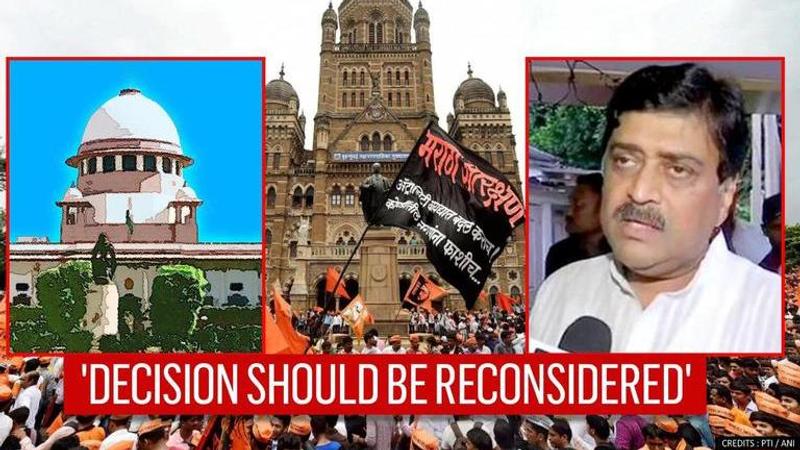Published 19:03 IST, January 8th 2021
Cong wants 9-judge SC bench to hear Maratha quota issue, calls for Centre's intervention
Speaking to the media on Friday, senior Congress leader Ashok Chavan opined that a 9-member bench of the Supreme Court should hear the Maratha quota matter.

Speaking to the media on Friday, senior Congress leader Ashok Chavan opined that a 9-member bench of the Supreme Court should hear the Maratha quota matter. A 5-judge Constitution bench of the apex court comprising Justices Ashok Bhushan, L Nageswara Rao, S Abdul Nazeer, Hemant Gupta and S Ravindra Bhat is scheduled to hear on January 25 the petitions challenging the constitutional validity of the Socially and Educationally Backward Classes Act, 2018. Chavan contended that this bench cannot overrule the Indira Sawhney verdict delivered by a 9-judge bench.
In the Indira Sawhney vs Union of India case, the apex court ruled that the total reservation cannot exceed 50%. Maintaining that the 50% cap on reservations must be reconsidered, the Maharashtra PWD Minister called upon the Centre to accord "constitutional protection" to the Maratha quota akin to the reservations in Tamil Nadu. The Tamil Nadu Backward Classes, Scheduled Castes and Scheduled Tribes (Reservation of Seats in Educational Institution and of Appointments or Posts in the Services under the State) Act, 1993 was inserted in the Ninth Schedule to the Constitution in 1994 giving legal sanction to 69% reservation in Tamil Nadu. Chavan said that he will request Maharashtra CM Uddhav Thackeray to write to PM Modi in this regard.
SC verdict on Maratha quota
In the SEBC Act which came into force on November 30, 2018, the Maratha community has been declared as a 'Socially and Educational Backward Class'. While upholding the validity of this law, the Bombay High Court reduced the quantum of Maratha reservation to 12% in educational institutions and 13% in public employment. However, in its order delivered on September 9, 2020, a three-judge bench of SC prima facie held that the Maharashtra government has not shown any "extraordinary situation" for providing reservation to the Marathas.
Noting that the 50% reservation ceiling could be relaxed only in extraordinary situations, it added that the Maratha community comprising 30% of Maharashtra's population could not be compared to the marginalized sections of society living in remote areas of the state. Moreover, the SC prima facie observed that the Bombay HC had committed an error in treating certain circumstances as "extraordinary", justifying the relaxation of the reservation ceiling. It ruled that admission to educational institutions for the academic year 2020-21 and appointments to posts under the government will be made without references to the reservations provided in the Act.
Updated 19:03 IST, January 8th 2021




